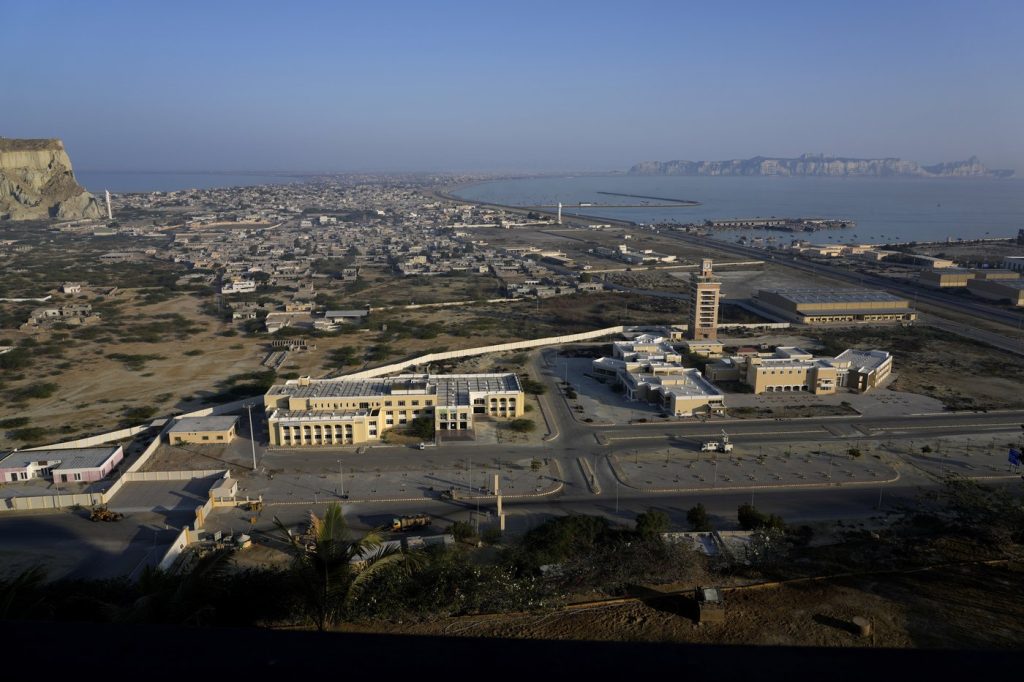GWADAR, Pakistan (AP) — The New Gwadar International Airport, fully financed by China at a staggering cost of $240 million, stands as an emblem of ambition without execution, as it remains devoid of passengers and operational flights. Completed in October 2024, the airport is situated in Gwadar, a coastal city in the impoverished province of Balochistan, raising questions about its necessity for a population of just 90,000 residents.
For over a decade, China has invested heavily in Balochistan, a region rich in resources and strategic importance, as part of the China-Pakistan Economic Corridor (CPEC). This multibillion-dollar initiative aims to establish a direct connection between China's Xinjiang province and the Arabian Sea. However, despite government claims that CPEC will bring transformational change, there is little evidence that the local population has benefitted. The city is not linked to the national electricity grid and relies on electricity from Iran and solar energy, while access to clean water remains a critical issue.
Azeem Khalid, an international relations expert specializing in Pakistan-China relations, notes, “This airport is not for Pakistan or Gwadar; it is for China, so they can have secure access for their citizens to Gwadar and Balochistan.” This sentiment highlights a growing skepticism among residents regarding the project's true intentions.
Balochistan has a troubled history marked by a decades-long insurgency driven by local grievances against what residents describe as state exploitation. Separatist groups have regularly targeted Pakistani military forces and Chinese workers, leading to increased security measures in the area. The presence of military checkpoints and surveillance has created a climate of fear and distrust, leaving many locals feeling marginalized.
Many residents remember a time when Gwadar was a thriving port town, even before it became part of Pakistan, where opportunities were abundant and basic needs were met. Khuda Bakhsh Hashim, a 76-year-old local, reminisces about the past when the community enjoyed a rich environment and did not face the current struggles for water and resources. With the advent of CPEC, locals claim they see little to no benefit, as job opportunities for the native Baloch appear limited.
Currently, Gwadar’s only commercial air link operates three times a week to Karachi, the largest city in Pakistan, with no direct flights to the provincial capital Quetta or the national capital Islamabad. The isolation felt by the residents is compounded by the perception of Gwadar as a dangerous destination, deterring tourists and potential investment.
As the project progresses, activists accuse the government of utilizing heavy-handed tactics against dissenters. Reports of forced disappearances persist, with many locals fearful of speaking out against perceived injustices. The CPEC initiative, rather than providing relief, has instead led to increased military presence in Gwadar to protect Chinese investments. Abdul Ghafoor Hoth, a local political leader, emphasized that not a single resident of Gwadar was hired at the new airport, further fueling resentment among the community.
The initial inauguration of the airport was delayed due to security concerns, with authorities opting for a virtual ceremony attended by Pakistani Prime Minister Shehbaz Sharif and his Chinese counterpart Li Qiang. Residents are left to grapple with unfulfilled promises — protests led by locals for better access to essential services such as electricity and water yielded no substantial results, highlighting a deep-seated disconnect between the government and the people of Balochistan.
Ultimately, the massive investments flowing into Gwadar, hailed as necessary for progress, have yet to address the fundamental challenges faced by its residents. As Khalid points out, with no local labor force benefiting from these developments, the prospects of CPEC as a transformative endeavor remain bleak in the eyes of Gwadar's inhabitants.










